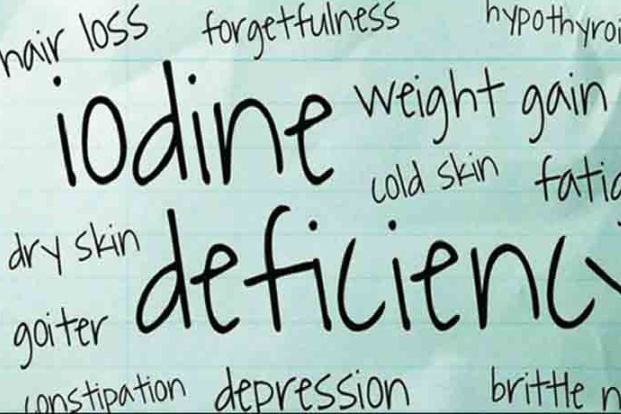What are the Iodine deficiency disorders?
Apr 19, 2022
Iodine is a chemical element. It is situated in trace amounts in the human body and its only known function is in the synthesis of thyroid hormones.Major iodine deficiency results in impaired thyroid hormone synthesis and or thyroid enlargement (goiter).

Iodine deficiency disorders (IDDs), includes endemic goiter, hypothyroidism, cretinism, decreased fertility rate, increased infant mortality and mental retardation. Iodine deficiency can lead to enlargement of the thyroidhypothyroidism and to intellectual disabilities in infants and children whose mothers were iodine deficient during pregnancy.. Required to produce thyroid hormones that control cell metabolism, neuromuscular tissue growth and development, especially the fetalperinatal brain Present in minute quantity (15-20 mg) in the body. These effects are due to insufficient production of thyroid hormone and are termed iodine-deficiency disorders. Iodine deficiency is the most important and common region of preventable mental impairment worldwide. Assessment methods include urinary iodine concentration, goitre, newborn thyroid-stimulating hormone, and blood thyroglobulin iodine supplements can be given to susceptible groups. Introduction of iodised salt to regions of chronic iodine-deficiency disorders might transiently increase the proportion of thyroid disorders, but overall the few risks of iodine excess are far outweighed by the substantial risks of iodine deficiency. International efforts to control iodine-deficiency disorders are slowing, and reaching the third of the worldwide population that remains deficient poses major challenges.
Iodine deficiency disorders are follows in adults:-
- Lack of energy
- apathy, slow brains
- goitre and mechanical complications
- Nodular thyroid
- hyperthyroidism
- Pregnancy and cretinism








